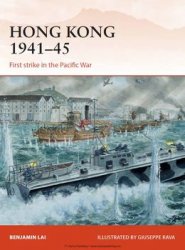We can be certain that Josephus thought about the issue of purity (Colautti 2002), whether it was his inkpot’s or his own, as he negotiated his daily life as an exiled priest without a temple in the new Babylon. No other extant ancient historian provides such a voluminous example of the blending of Greek, Roman, and Jewish cultural traditions in antiquity, while emphasizing the essential differences, too. I cannot imagine a more provocative object of discussion for students and scholars in the twenty-first century who every day see in the news issues of religion and politics, insurgents and overwhelming force, colliding in the Middle East to create devastating war. And one has to wonder which new Joseph will emerge in the aftermath to provide his or her historical account to inform, sway, and entertain a new generation of readers.
FURTHER READING
Students should use the Loeb editions of all of Josephus’ works (Niese’s is less available; the multi-volumed Concordance by Rengstorf is an invaluable aid), but should also consult the new translations and commentaries of the Brill Josephus Project edited by Steve Mason (Feldman 2000; Mason 2001 [with an appendix on archaeological sites as well as maps by the Survey of Israel separate from the book, therefore very easy to use]; Begg 2005; Begg and Spilsbury 2005 so far); the introductions and bibliographies to each of these Brill volumes will be the best place to start one’s research. Though less recent, Attridge 1984b and Feldman 1984a are excellent introductions as well. The essays in Edmondson et al. 2005 situate Josephus in the context of Rome. For those interested in the intersection between Josephus and the New Testament, Mason 2003a provides the most balanced and sophisticated approach. For a biography of Josephus, Hadas-Lebel 1993 is very engaging and briefly at the end considers his “Posthumous Fate.’’ (In a less scholarly vein, I would also recommend the novels on Josephus by Lion Feuchtwanger; the film Masada with Peter O’Toole
Playing the Roman commander Silva is probably the most widely viewed piece from Josephus’ works ever made.) Finally, Steve Mason is currently developing a massive database on the web called PACE (the Project on Ancient Cultural Engagement: paceweb. cns. yorku. ca), which places the works of and scholarship on Josephus within a much broader scope of inquiry. The most exciting aspect of this site will be the online, dynamic commentary to all of Josephus’ works, based upon the Brill Project.




 World History
World History









